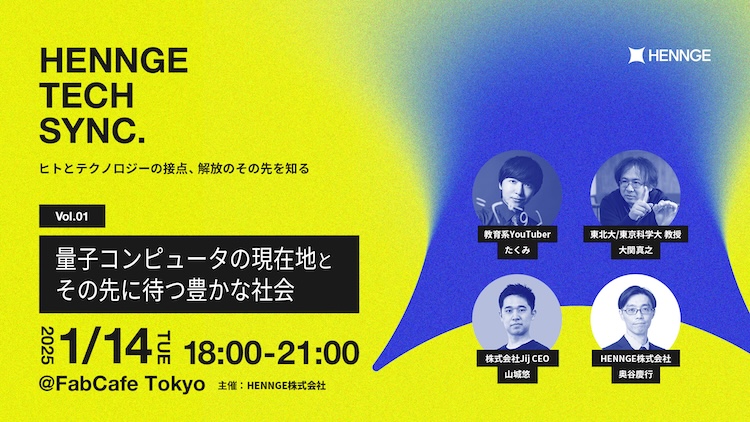
What will the latest technology bring us? And what kind of future lies ahead?
HENNGE TECH SYNC., the title of this event, had its first theme as “The Current State of Quantum Computers and the Rich Society that Awaits.” This ambitious theme was appropriate for the beginning of a memorable year that marked the 100th anniversary of the birth of quantum mechanics. The event provided a valuable opportunity for attendees and speakers to interact through a multifaceted Q&A session.
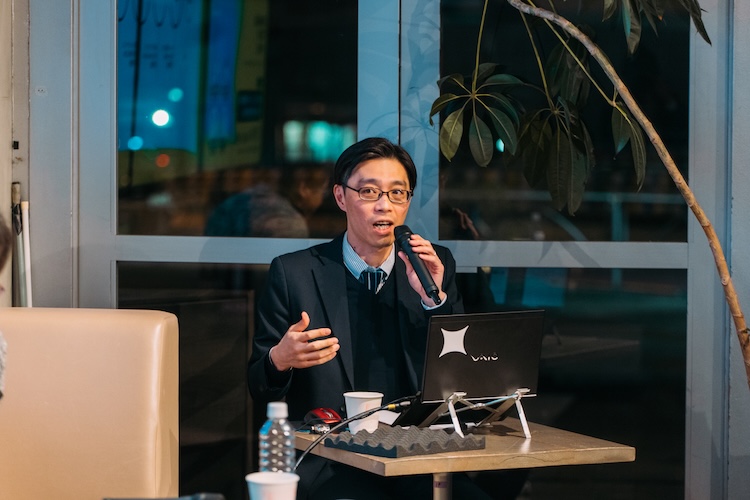
The event’s moderator was Yoshiyuki Okutani of HENNGE K.K., the event’s organizer. Okutani began the talk by introducing the changes in HENNGE’s business since its establishment in 1996, with the corporate philosophy of “Liberation of Technology.” He highlighted HENNGE’s continued stance as an early adopter of new technologies and mentioned “HENNGE One,” its SaaS solution, which supports the convenient and secure use of cloud services.
The speakers invited this time were Masayuki Ohzeki, a professor at Tohoku University and Institute of Science Tokyo, who is engaged in research on quantum annealing technology and its social implementation and human resource development; and Yu Yamashiro, CEO of Jij Inc., who is researching cutting-edge technologies such as quantum technology and optimization calculation technology, while providing cloud services such as JijZept™ that support the development process of mathematical optimization. In addition, Takumi, a YouTuber who distributes videos that allow science students to learn university mathematics and physics with the vibe of a prep school, was a facilitator; he had been friends with both speakers since his university days.
Will Quantum Computing Become a Business?
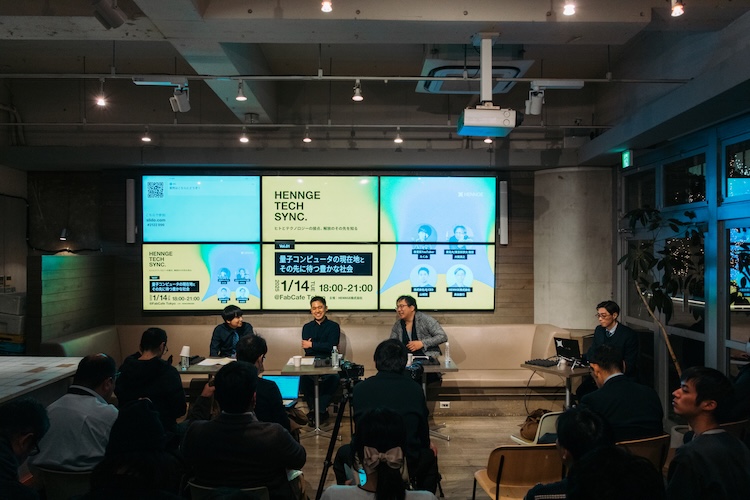
At the beginning of the panel, Takumi pointedly asked, ” Will quantum computing become a business?” In response, the panelists expressed their current situation and expectations, stating that while there is sufficient possibility, market development is still in its early stages.
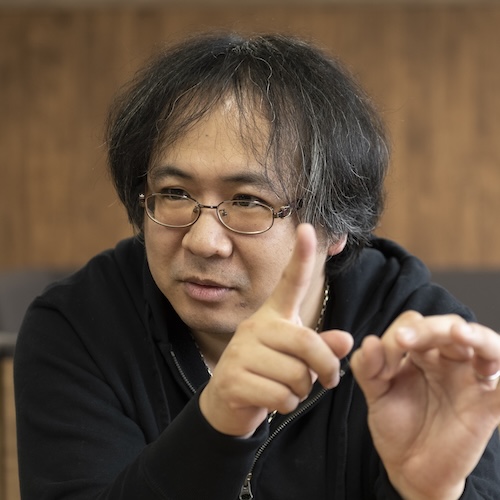
Ohzeki
Through university lectures, I am playing the role of a quantum computing evangelist. And I am researching how quantum computers should be used, working closely with my students on these challenges. The intersection of quantum technology and business, which is the focus of this event, is also a key area of interest for us. I want to lay the foundation for how things will become faster and more convenient by applying quantum computing to society.
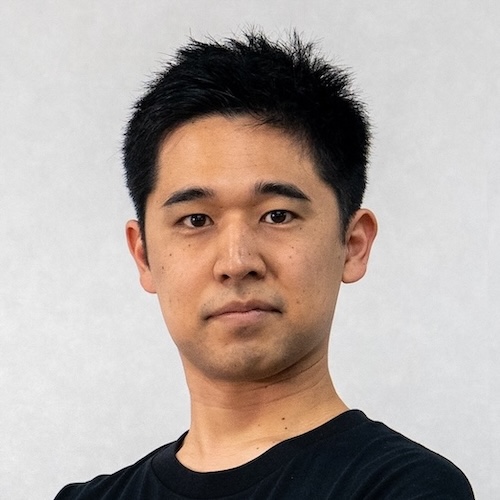
Yamashiro
I’m between business and research, developing and providing optimized software on quantum computers. I also collaborate with companies that make hardware and overseas startups in the US and UK, including AWS.
Although companies like NVIDIA, highly competent in the generative AI field, have emerged, quantum computers have not yet reached that level. Still, there is potential for them to become a big business in the future.

Ohzeki
I believe there will be two phases of business development for quantum computers in the future. The first phase will see profits generated from performance improvements, as quantum computers are a type of computer. In the second phase, if services that utilize quantum computers emerge, they could potentially generate profits in the hundreds of millions of yen range. While the number of quantum computer users is still low, profits are currently being generated through service utilization.
I hope that something like a special dedicated machine, like GPUs for generative AI, will emerge that can accelerate the potential of quantum computing. Just as generative AI has overcome many winters and won the Nobel Prize in Physics, now may be the time for quantum computers to persevere.

Yamashiro
Although it was said that “Quantum Winter*” would come in 2022, the progress of quantum computer research has not stopped, and it has become more widespread in companies.
*Quantum Winter: A situation where the development of quantum computers stagnates, and no progress is seen.

Ohzeki
That’s because countries and companies have continued to support the development.
Does the Ambiguity of Quantum Expand the Realm of Business?
In recent years, we have increasingly heard the term “quantum computer,” but what exactly is it?
Compared to conventional computers, which use electrical signals turned on or off as “0” or “1”, quantum computers utilize the principle of superposition, a fundamental law of quantum mechanics. They use quantum bits (qubit) as their basic unit, which can exist in multiple states at the same time. This characteristic allows them to process vast amounts of information simultaneously in certain situations.
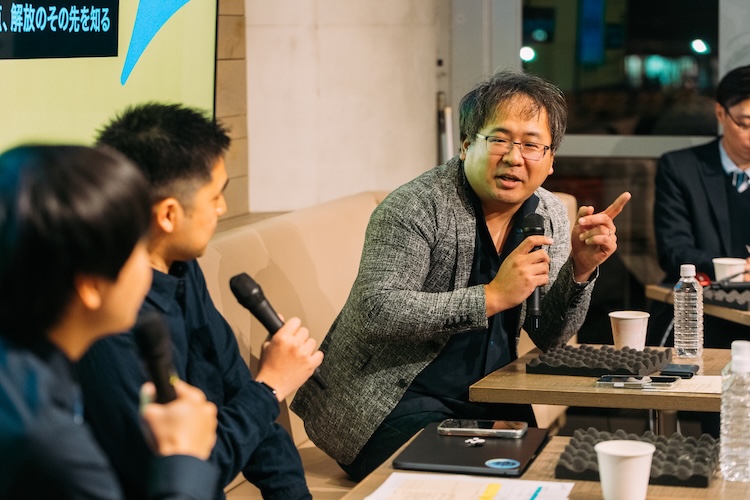

Ohzeki
A quantum computer computes; in other words, it is a type of calculator. We, human beings, use calculators or count on our fingers to calculate. A quantum computer can consider and skillfully control the intermediate states, not limited to binary values, like on your finger opening or bending halfway. It adjusts the algorithm to solve for these ambiguous numbers that are neither 0 nor 1 and examines them instead of us.

Yamashiro
When asked about quantum computers, I use the answer I heard in Prof. Ohzeki’s lecture eight years ago. Quantum computer speed is not the same as clock frequency*. The framework of calculation itself is different from that of current computers. If what a conventional computer does is addition, then a quantum computer can do things like multiplication and division. Quantum computers have their strengths and weaknesses, and actually, the speed of each individual calculation is slower. However, they can calculate in fewer steps for certain specific tasks, resulting in a faster overall speed to reach the answer.
*Clock frequency: The vibration frequency that determines the processing timing in computers and electronic devices. Also called operating frequency, it is one of the indicators of CPU performance. The unit is Hz (hertz).
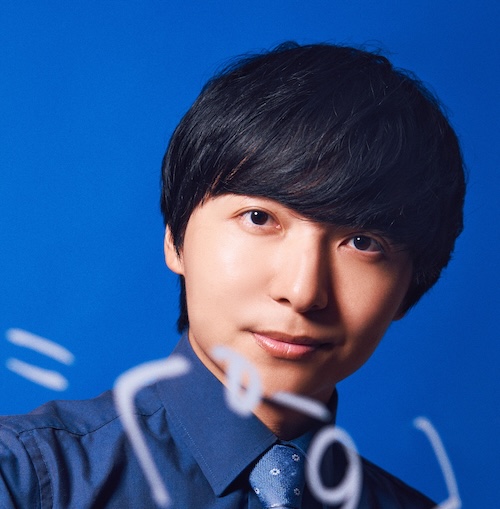
Takumi
It’s easy to misinterpret ‘fast’ when talking about quantum computers, so I avoid oversimplifying it on my YouTube channel (laughs).
When a question from the audience asked if the general public can use quantum computers or services that utilize quantum computers, the answer was, “You can use them right away.” It is possible to run quantum computers on your own device with a publicly available simulator or use actual quantum computers remotely. Quantum computers are also featured in events for high school and university students.
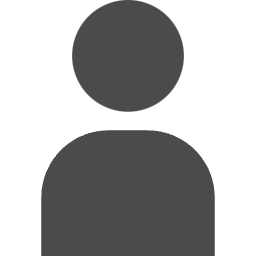
Question from the audience
What kind of problems are quantum computers good and bad at?

Yamashiro
“Quantum annealing machines*,” one type of quantum computers, are good at graph theory and communication system problems.
Also, in the field of “approximation algorithms*,” it has been discovered that quantum computers can solve optimization problems with certain periodic structures exponentially faster than conventional computers, and this is attracting a lot of attention. In the future, we will find more problems in a wider class for which quantum computers with theoretical guarantees are better suited. Hardware updates will also support this.
*Quantum annealing machine: There are two types of quantum computers: gate-based quantum computers and quantum annealing machines. The latter is specialized for combinatorial optimization problems.
*Approximation algorithm: An algorithm for finding an almost exact answer, or an approximate value, in a limited period when it is difficult to find an accurate and final answer, such as in combinatorial optimization problems. An example is a map application, which shows users a reasonably good route quickly instead of examining all possible routes for the shortest one.
Part 2 will report on the continued enthusiastic discussion, including the domestic and foreign companies leading the industries and the application of quantum computers in the near future.
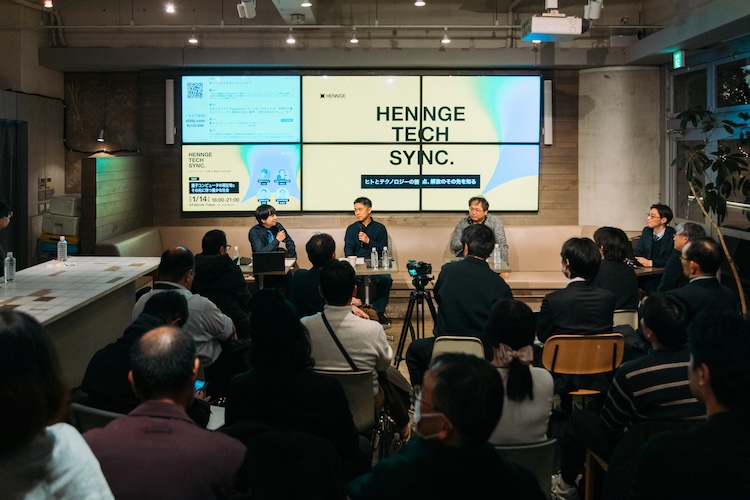
Takumi
How are you two usually involved with quantum computers?